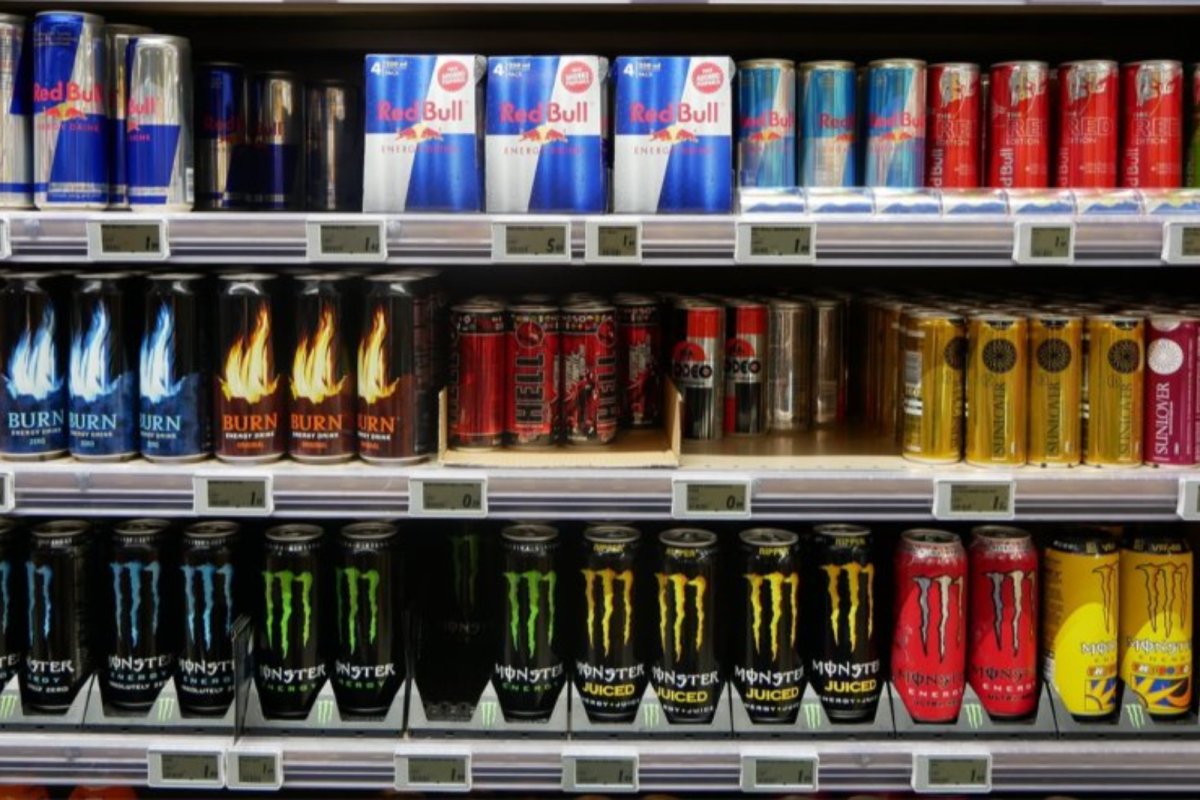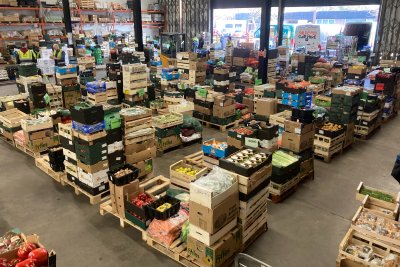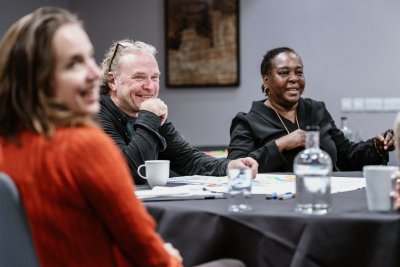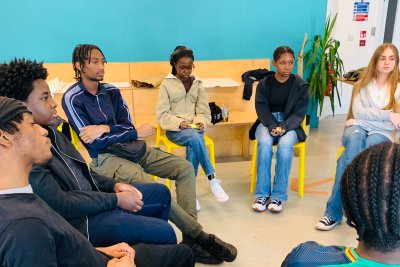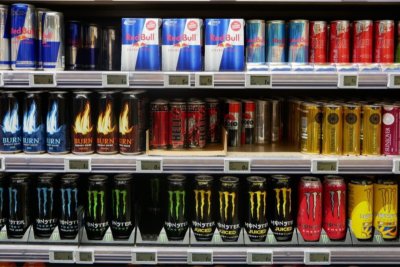 Energy drinks carry warning labels saying "Not suitable for children". Credit: Joenomias | Pixabay. Credit:
Energy drinks carry warning labels saying "Not suitable for children". Credit: Joenomias | Pixabay. Credit:
Not suitable for children means not suitable for children
In this blog, public health nutrition expert Professor Amelia Lake and parent ambassadors Dr. Rounaq Nayak and Mezreet Rasul discuss the issues surrounding energy drink consumption, and why a ban energy drinks sales to under-16s is important for children’s health.
Children's Food Campaign polling with over 2000 parents across the UK, reveals that 8 in 10 parents support measures to stop energy drinks being sold directly to children. That’s why our parent ambassadors included a ban on energy drinks sales to under-16s as one of five pillars for action in their manifesto Our Children, Our Future. Great news for parents to hear that Labour have pledged to ban energy drinks sales to children under 16 if elected, but we need ALL political parties to prioritise children’s health. Join the call with parents!
In this blog Professor Amelia Lake and parent ambassadors Dr. Rounaq Nayak and Mezreet Rasul have an open dialogue about energy drinks. They delve into various aspects regarding the accessibility, perception and marketing of energy drinks. Additionally, they explore whether a ban is enough and what else would make the ban more effective.
Energy drinks - still easy access for children
Mezreet: “I'm curious why energy drinks, which aren't suitable for children, are so readily available in supermarkets like Home Bargains. It's surprising to see children walking out with these cans as early as 7:45 in the morning.”
Amelia: “It was really interesting - when the Labour announcement went public. Many people said, "But they're already banned." That's not true - some supermarkets have voluntary restrictions, but it's not necessarily enforced everywhere. Based on data we collected last year with young people, there's a lot of confusion about the age restrictions. They asked ‘why does this say it's not suitable for kids, but we're allowed to buy it? And I think that's the bottom line. It's not suitable. The new proposal for under-16s could bring some clarity to this issue.”
The case for government action
Mezreet: “Why has it not already been banned; all the evidence is there. These drinks can raise blood sugar levels, blood pressure, and increase the risk of developing type 2 diabetes in children.”
Amelia: “It just feels like market forces and profit are more important than health. The evidence base is massive and it's growing, but the evidence base is about association and not causation - that argument gets rolled out by media. But does that matter? Do we need to have a Randomised controlled trial (RCTs)? Do we have RCTs about fireworks? We don't sell them to children. Do we have any RCTs about knives. We don't sell knives to children … you know, aerosols, the list of what we don't sell to children is massive. It’s the fastest growing sector of the soft drink market and it’s somewhere where commercial determinants have come out stronger than health.”
The allure of energy drinks: perceptions and marketing influences
Amelia: “The injustice lies in a product that declares itself unsuitable for children yet surrounds itself with marketing that appeals directly to children.”
Rounaq: “Yeah, I think wide appeals might not work for my 3-year-old. She's only wanted it when the older ones ask for it. For my older child, it's different. There's a trend in classrooms where kids think energy drinks make them faster.
“Red Bull talks about wings, and another brand is marketed by a popular social media influencer. Its colour, build, and packaging are very appealing. It would be interesting to know why kids link these drinks to being faster and speedier. Could it be because of cartoons?”
Amelia: “Why are they seen as positive? The word "energy" is positive, and many energy drinks are affordable, especially older brands. Before the 2018 Jamie Oliver campaign, many parents saw them positively. We don't necessarily have the data before and after, but that campaign significantly raised awareness. Kids see them positively due to advertising and marketing, associating them with extreme sports, music, motor racing, and gaming. These activities are seen as making you faster, better, and cooler, driven by the hype.”
Mezreet: “Social media plays a huge role nowadays. When kids are on their phones, they are influenced by various social media platform. I think also the Youtubers. It's making children more likely to stay on these games and consume these drinks.”
Amelia: “... every time they turn on the TV, it's around a football pitch or it's on somebody's bike or on somebody's shirt.”
Rounaq: “A famous footballer mentioned in an interview that he drinks two energy drinks before every match to get through 90 minutes of intense Premier League football. I play football and I know kids who play football who would want the energy drinks because it makes them like their favourite footballer.”
Amelia: “There's a common misconception and confusion around energy drinks, sports drinks, and isotonic drinks. No one has researched this yet, but I often see many bottles of these drinks at kid’s football and cricket matches. We need to create guidelines for our children’s sports clubs about what is and isn't appropriate.”
“Energy drinks are marketed as energising for kids because they sponsor elite athletes like footballers and cyclists. It’s all about the marketing push, which can be confusing for parents.”
Rounaq: “I was also thinking about cultural factors, like when I was growing up and preparing for my GCSEs or A-levels. Red Bull was probably the most popular energy drink then, and it was actively promoted by teachers and my parents. They would suggest having a Red Bull if I felt tired while studying, believing it would help. At that time, I wasn't aware of the health implications. There seemed to be a cultural link between having an energy drink and staying up a bit longer, whether for gaming, studying, or other activities.”
Is a ban enough?
Rounaq: “A ban would be a starting point, but there's more to addressing the issue. We need structured education around energy drinks in school. Including discussions in PE classes and broader curriculums can help children understand the potential impacts of these drinks. Simply banning sales to minors doesn't prevent parents from buying energy drinks for their children. It's a multifaceted issue that goes beyond regulation. The concept of a nanny state comes into play here; while a ban is necessary, it's not sufficient.
“There should also be stricter regulations on packaging, clearly displaying caffeine and sugar content. Currently, this information is often hard to find unless you thoroughly inspect the bottle or can. Traffic light labels could help, but they're not always present.”
Amelia: “The writing of the health warning on the products is so very small… I honestly cannot read it.”
Rounaq: “The packaging emphasises the branding and visual appeal over essential details like nutrition and caffeine content. It’s usually at the back, and no parent or child will turn the bottle or can around unless they are actively searching for it. A traffic label system might be more effective, as it uses larger, color-coded indicators to clearly show nutritional aspects, although caffeine isn't currently included in such systems.”
Amelia: “I would really like to see some responsibility from industry. I would like to see responsible marketing advertising. They'll say no that they don't market and advertise to children – but every 12-year-old is aspiring to be an 18-year-old and it's connected with everything that's got to do with youth culture, from computer gaming to football to motor racing. There's a lot more to be done, we need regulation on the advertising and marketing for it to be effective.”
A message to the next government
Rounaq: “A request to government to look at all available evidence, especially in policymaking, where understanding the impact of energy drinks on children is critical. This would create more awareness among the politicians and the government, in holding the industry accountable and the impact it has on society.”
Amelia: “My message for the next government is to develop new policies by learning from other countries that have implemented similar regulations on energy drinks such as Latvia and Lithuania, as I expect there will be huge industry backlash. My other plea is that they work alongside young people to think about how this will work in reality.”
Mezreet: “As I mentioned earlier, why has it not already been banned; all the evidence is there about impacts on our children. It’s time for the government to step in and prioritise children’s health.”
About our speakers
Dr Amelia A Lake is a dietitian and public health nutritionist. Amelia works as a Professor of Public Health Nutrition at Teesside University and is an Associate Director of Fuse, The Centre for Translational Research in Public Health. Her current work is to explore the Obesogenic Environment. Amelia has a particular interest in the food environment, the environments of young people, energy drinks, the workplace environment, science communication and knowledge exchange.
Dr Rounaq Nayak is a Senior Lecturer in Sustainable Agri-Food Systems at Bournemouth University. He is passionate about exploring the reciprocal relationship between organisations and local communities, analysing their mutual influence, and studying the sustainability implications within agri-food systems. Rounaq is an ambassador for the Children’s Food Campaign and is a parent of a 3 year year old and 9 year old.
Mezreet Rasul has dedicated over two decades to the Early Years profession, starting as an Early Years practitioner and eventually progressing into a management role. Throughout her career, she has successfully launched several innovative initiatives in the Oldham area. Previously, Mezreet served as a Play, Learn & Grow (PLG) Coordinator where she engaged with numerous families in both home and school environments. Mezreet is an ambassador for the Children’s Food Team and a parent of three children, including a 13 year old.
More information
Polling conducted by Savanta with 2,039 parents of children age 0-18. Field work took place 2-11 January 2024. More details of the polling.
Our January 2024 letter to the Government and to shadow health secretary Wes Streeting.
Latest evidence on the physical and mental health effects associated with energy drinks consumption by children from Fuse.
Energy Drink information leaflet for parents and children from Fuse.
A quick guide to energy drinks by the DSM Foundation
Children's Food Campaign: Campaigning for policy changes so that all children can easily eat sustainable and healthy food.
Sustain
The Green House
244-254 Cambridge Heath Road
London E2 9DA
020 3559 6777
sustain@sustainweb.org
Sustain advocates food and agriculture policies and practices that enhance the health and welfare of people and animals, improve the working and living environment, promote equity and enrich society and culture.
© Sustain 2025
Registered charity (no. 1018643)
Data privacy & cookies
Icons by Icons8
